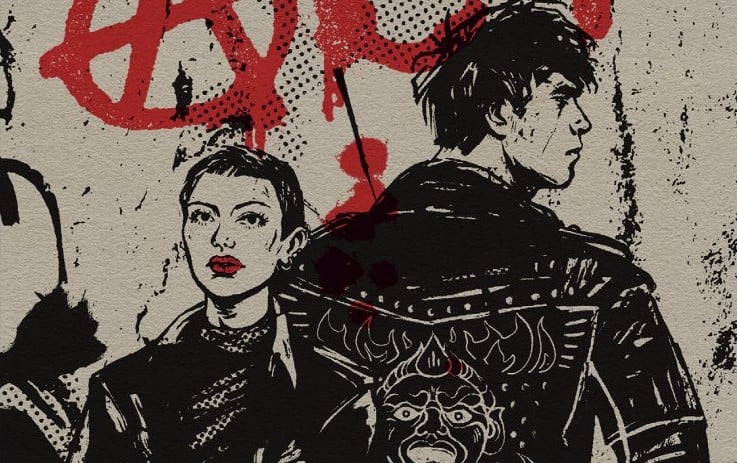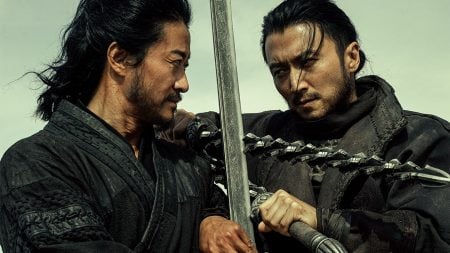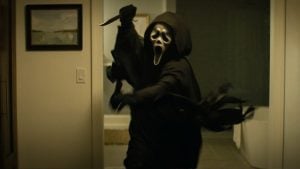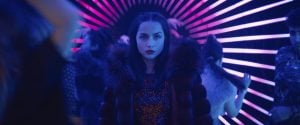In the realm of contemporary fiction, Sarah Lariviere has carved out a niche with her unique voice and compelling narratives. Her latest novel, Riot Act, is no exception. We had the privilege of sitting down with Lariviere to delve into the inspirations behind her work, the challenges she faced during the writing process, and the themes that resonate throughout the story. Join us as we explore the creative journey of one of today’s most intriguing authors.
GVN: Hello Sarah! Thank you so much for speaking with Geek Vibes Nation about your upcoming novel, Riot Act. Could you start by telling our audience about yourself and your book?
Thank you so much! So happy to be invited.
Riot Act is an alternate history set in an authoritarian America in the year 1991. In the story, a group of theater kids in Illinois put on an illegal punk-rock adaptation of Shakespeare’s Henry VI. I wrote it because I wondered what kids like my friends and I would’ve done if we’d been terrorized by a brutal, repressive governmental regime.
GVN: Riot Act has such a fascinating and unique premise. Could you talk about the origins of this intriguing idea?
Well, as a teen, I despised authority. And I don’t have any taste for it now! Most teens harbor this natural resistance to being told what to do, which made it seem like a proper theme for my next YA novel. Also, I studied abroad in Budapest, Hungary in the mid-1990s—a place where artists had faced intense censorship for decades before. I was curious about what makes some artists fight to make outlaw work in such circumstances, even when it means risking their lives.
GVN: I see you have a theater degree from Oberlin University. How did your own experiences as a theater student factor into the novel?
Theater is a family. Working together to create art that moves an audience is, for some teens, a crucial experience in bonding, community, and discovering who they are. For the characters in Riot Act, theater is a home from which they draw strength, and a place they’re passionate about protecting when adults try to burn it to the ground.
GVN: Could you tell us about the research you did while writing the novel? What were some of the books you read to help you build the world of Riot Act?
For Riot Act, I did tons of research about normal people who subvert authority to live and love in autocratic, repressive societies, and tons of research about the birth of the internet—another facet of the landscape of this book. I’d studied theater in college, so there was less research to do there, but I refreshed on Ancient Greek theater, and masks from around the world. Research is, for me, one of the reasons to write fiction—it’s such an immense pleasure to collect books that help me breathe life into the world of the novel. I’d recommend that everyone read the book On Tyranny: Twenty Lessons from the Twentieth Century by Timothy Snyder. Practical, straightforward information about fighting against autocracy. There is a suggested reading list at the end of the novel.
GVN: I really loved Max and Gigi. Max is especially intriguing given how he’s narrating the story and what he’s trying to accomplish. How did you go about creating these two? Are they inspired by real people?
Max just showed up when I sat down to write the story. Where did he come from? No idea. It was nearly impossible to keep up with him! I really fell deeply in love with Max; I felt like I’d made my own new dead best friend. Gigi, on the other hand, is a heavily autobiographical character. I gave her the car I drove in 1991 (a brown 1979 Chevy Malibu), my job hostessing at the Round Barn Restaurant, the neighborhood in the cornfields where I grew up—even my navy jacket! I also gave her a father who is a bartender, like mine was, and my stubborn refusal to adhere to rules that make no sense. I also gave her some intense crushes. While none of the characters in the book are based on real people, I have a few critical friends from that era who recognize aspects of themselves, including a dear old friend who grew up down the street from me, who generously lent some of his DNA to the character of Axl.

GVN: The secondary characters in your novel are equally intriguing. Could you share the inspiration behind them? What do you think is the key to creating interesting supporting characters?
In high school, I was lucky enough to have a bunch of wounded-bird artsy weirdo friends who all felt a deep need to love and protect one another from the conformity and misery of parts of the world we didn’t fit into and couldn’t escape. These folks inspired my secondary characters. I think there’s both an intuitive thing and a formulaic thing about creating secondary characters. Intuitively, you just want the book to feel somehow balanced. Secondary characters can add tones to the color palette, in that way. In terms of the fictional formula, which isn’t really a thing in general but is kind of a thing on a book-by-book basis, I needed—well, in this case, I needed characters to help me flesh out the argument that’s at the core of the novel: When is freedom of expression worth dying for? And a subsidiary question: Is violence ever justified in situations where revolution is necessary to liberate oppressed people?
Sure, it may sound like these are heady topics for teens, but this is what they think about—teens go into the military, after all! So, I needed to lay out the question thoroughly, with characters who could take different positions on these topics. Also, my own preference is to read books that are both dramatic and comedic, with romance, despair, longing, and granular detail about setting. So, I needed characters who could bring all that to the page—and deliver a really specific atmosphere, through their actions, and the way they communicate with one another. My old friends were really creative with language. Not only cussing, but also the poetry of insults, and just general commentary. Lately, I’ve been wondering if that poetic rhythm and humor comes from our Irish farmer ancestors… or what?
GVN: What is the biggest takeaway you want readers to leave this book with?
I want readers to ask themselves what they would do if they were in the same situation as the characters in Riot Act: banned from expressing themselves the way they need to, to feel fully alive. Would they fight back? How? Why? When would they give up? Is freedom of expression ever worth dying for?
GVN: What was your favorite part of writing the novel? What was the most challenging?
I loved writing this book so much. Especially, I loved depicting Champaign, Illinois in the year 1991, when I was a rowdy teenager – but a different 1991, where everything is especially warped and insane. I loved Max, all the time I spent with him, whispering in my ear. I loved burying Easter eggs for old friends who grew up in the cornfields. The most challenging part was making sure everything I wrote was critical to telling these kids’ story. While the book is funny, dirty, transgressive, ridiculous, and a thriller, it’s also very grave—the stakes could not be higher for these characters. Keeping the comedy and raunchiness in balance with the sober nature of the tale was a huge challenge and the biggest pleasure of my artistic life to date.
GVN: If Riot Act had a theme song, what would it be?
“Know Your Rights” by The Clash. There’s a soundtrack for the novel, in the back matter, and a playlist on Spotify:
https://open.spotify.com/playlist/5sKJmai399S9XT3PJKgUAd?si=61e7684db58c4f15
This song isn’t on it, actually, but it’d be the one!
GVN: Please assign yearbook superlatives to Max and Gigi.
Max: Most Likely to Knock Boots on a Lifeboat
Gigi: Most Talented
GVN: Could you tell us what you’re working on next?
I’m writing the sequel to Riot Act! It will come out with Random House in 2025.
GVN: Where can our readers connect with you online?
I’m active on Instagram @sarah.lariviere, and they can find me on my website, SarahLariviere.com
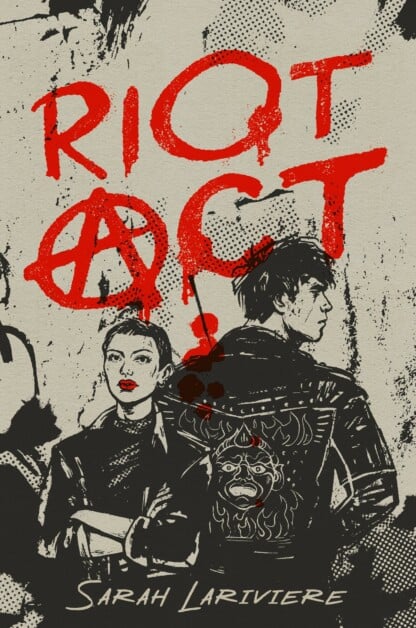
ABOUT RIOT ACT
Punk rock meets Orwell’s 1984 in this story of a group of theater kids who take on a political regime, perfect for readers who love books by A.S. King and Marie Lu.
In an alternate 1991, the authoritarian US government keeps tabs on everybody and everything. It censors which books can be read, what music can be listened to, and which plays can be performed.
When her best friend is killed by the authorities and her theater teacher disappears without a trace, Gigi decides to organize her fellow Champaign High School thespians to put on a production of Henry VI. But at what cost?

ABOUT THE AUTHOR
Sarah Lariviere is the author of The Bad Kid, a 2017 Edgar Award finalist, and Time Travel for Love and Profit. Sarah grew up in Champaign, Illinois, graduated with a degree in theater from Oberlin College and has a master’s degree in social work from Hunter College in New York City, where she specialized in casework with children and families. She lives in Los Angeles, California, with her family.

Writer. Video Essayist. Film/TV Critic. Pop Culture Enthusiast.
When he isn’t writing for Geek Vibes Nation or The Cinema Spot, Tristian can be found typing away at one of the novels or screenplays he’s been working on forever.


